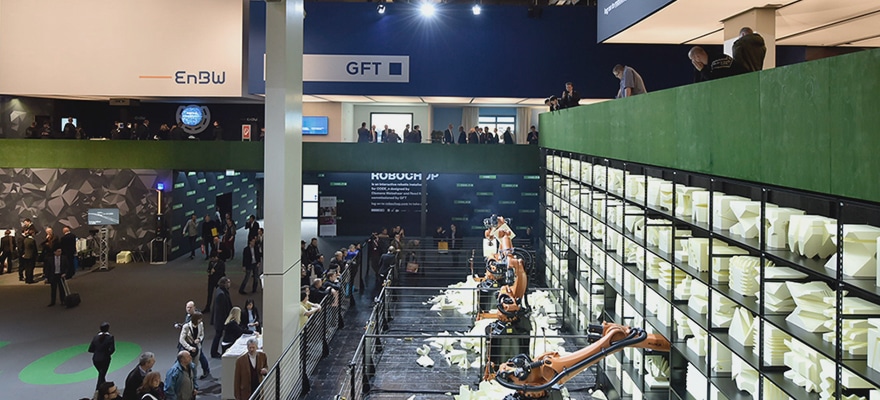GFT is a provider of business, design and technology consulting solutions to the investment banking community, which has approximately 4,000 employees around the world. Working behind the scenes for nine out of ten of the world’s largest banks and hedge funds, they help the likes of HSBC, Bank of America, RBS, and Barclays to understand where financial technology is headed.
In late January GFT announced that they uncovered six trends which they believe will shake up financial institutions, and among those was Blockchain technology. Robert Henry, Director and Lead for GFT North American Finance Business Consulting Practice, shared with Finance Magnates his thoughts on the subject.
How do you see Blockchain technology developing in 2016?
In 2016, Wall Street firms will continue to push for the disintermediation of third party transaction verifiers. When a trade is executed, e.g. a customer buys a stock, and it takes three days to settle because the current process requires input from intermediaries such as banks and clearing houses. Using Blockchain technology in this space could help speed up the process and lower transaction costs. However, there continue to be challenges such as regulatory concerns that exist, surrounding consumer and investor protection, security, money laundering etc.
R3 and Digital Assets are two notable start-ups currently looking at using the distributed shared ledger technology to execute real-time transactions across a private global network. It will be interesting to see how this plays out in 2016 and beyond. If successful, this will revolutionize the way financial firms interact, report, manage and regulate their respective markets.
While Blockchain has many practical properties, and is currently being used in other industries such as academia and health services, the growing interest and participation amongst Wall Street firms appears to have strengthened the focus on finding ways to provide better transparency and increased efficiency.
What milestones in adoption do you think we will see?

Robert Henry, Director and Lead for GFT North American Finance Business Consulting Practice
The buzz around the potential impact of the blockchain technology is deafening. There are a lot of brilliant ideas out there, but they will have little impact unless proper governance controls are set in place and technology solutions are able to keep up.
It may be a pipedream, but I think the government authorities and regulatory groups will need to develop a conceptual framework that will continue to protect the investor and consumer community without stifling innovation. Large financial institutions will adopt Blockchain technology in order to drive process efficiencies, provide reporting transparency, and accelerate the transfer of assets and value without fully deprecating their legacy systems.
What industries should we expect Blockchain technology to disrupt in 2016?
There are many potential ‘use-cases’ being investigated; some will thrive, but many will wither away. Banks may be able to mimic the Bitcoin payment process to execute money transfers using Blockchain technology, rivalling internet payment systems such as PayPal. They may be able to Leverage the immutable structure of transactions in the distributed ledger to facilitate back and middle office functions such as reconciliations. Usefully, the distributed ledger has cryptographically secure financial information that is auditable and reportable to external regulatory agencies.
Although very challenging types of use-case, the legal and mortgage industries could utilise smart contracts (utility programs in the blockchain) that can be automatically administered (e.g. the updating of a Will) or executed (e.g. Mortgage contracts) using Blockchain technology.
What can you tell us about GFT’s Project Jupiter incubator?
Project Jupiter was founded out of GFT’s ‘innovation incubator’, create@GFT, and is seeking to develop prototype solutions using Blockchain technology.
The latest is a commodities-based consensus computing prototype that can individually track and manage multiple physical commodities assets. This prototype has the capability to create a full audit trail including every participant and their movement of physical commodities.
How is the project going?
The project is going great! We have just released our latest thought leadership paper ‘A blueprint for initiating business change using Blockchain’ based on the best practice gained from our initial prototype. Working with key clients, there are many other applications and prototypes that we are seeking to build where distributed trust can be a disruptive force for real and positive change.
We are consulting with third party developers to help steer other prototypes, and we are continuously testing our models across market participants and combined user groups. I believe that GFT is taking a huge step into this transformative phase of the financial industry. With the transparency capabilities of Blockchain, the applications are wide and varied.
As a FinTech firm, GFT understands the issues our clients face, and we drive efficiency while reducing costs. We do this by taking on a strategic view of what our clients are asking for, how the regulatory landscape is changing, and using emerging technologies to build solutions for our clients.






















